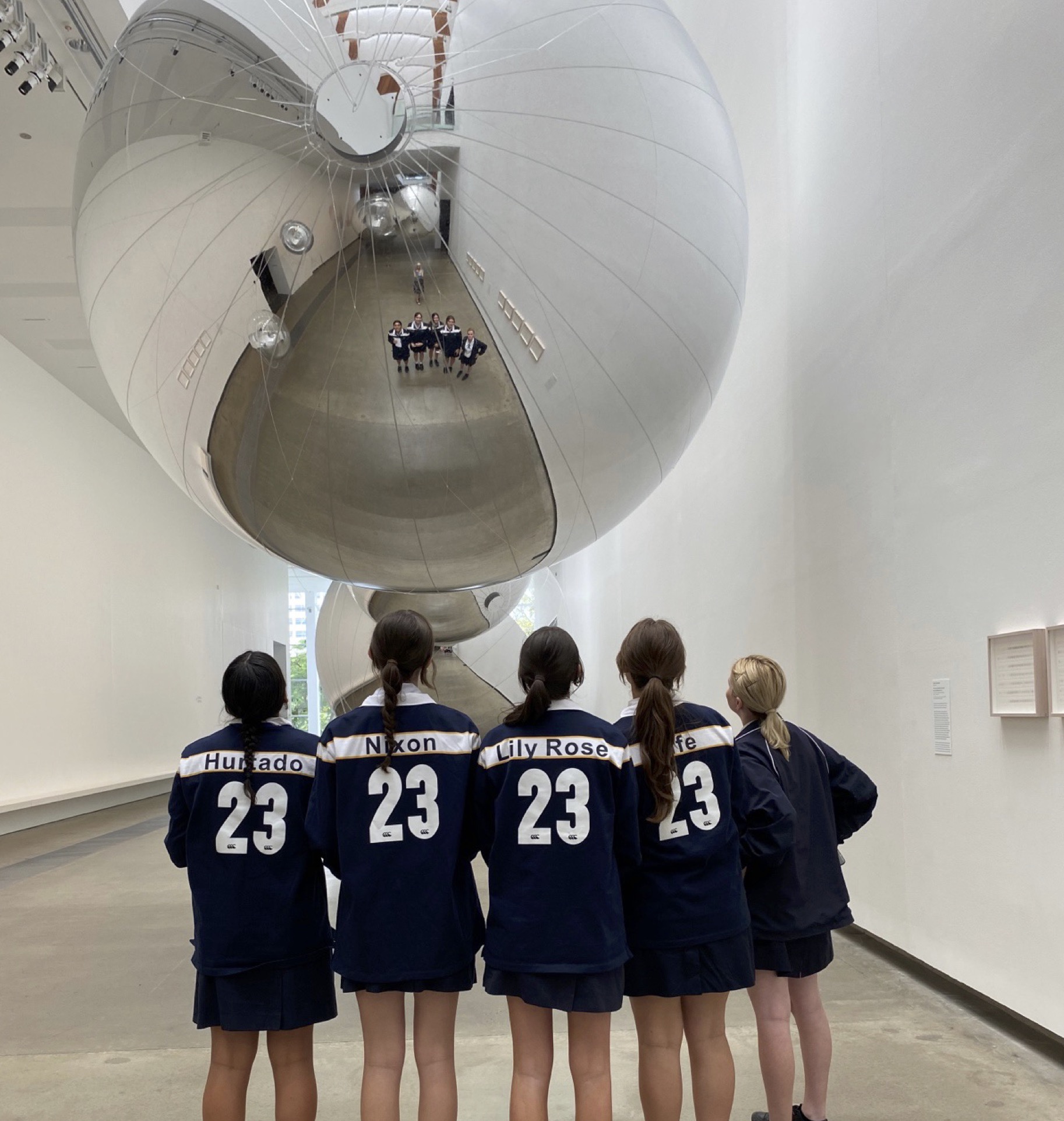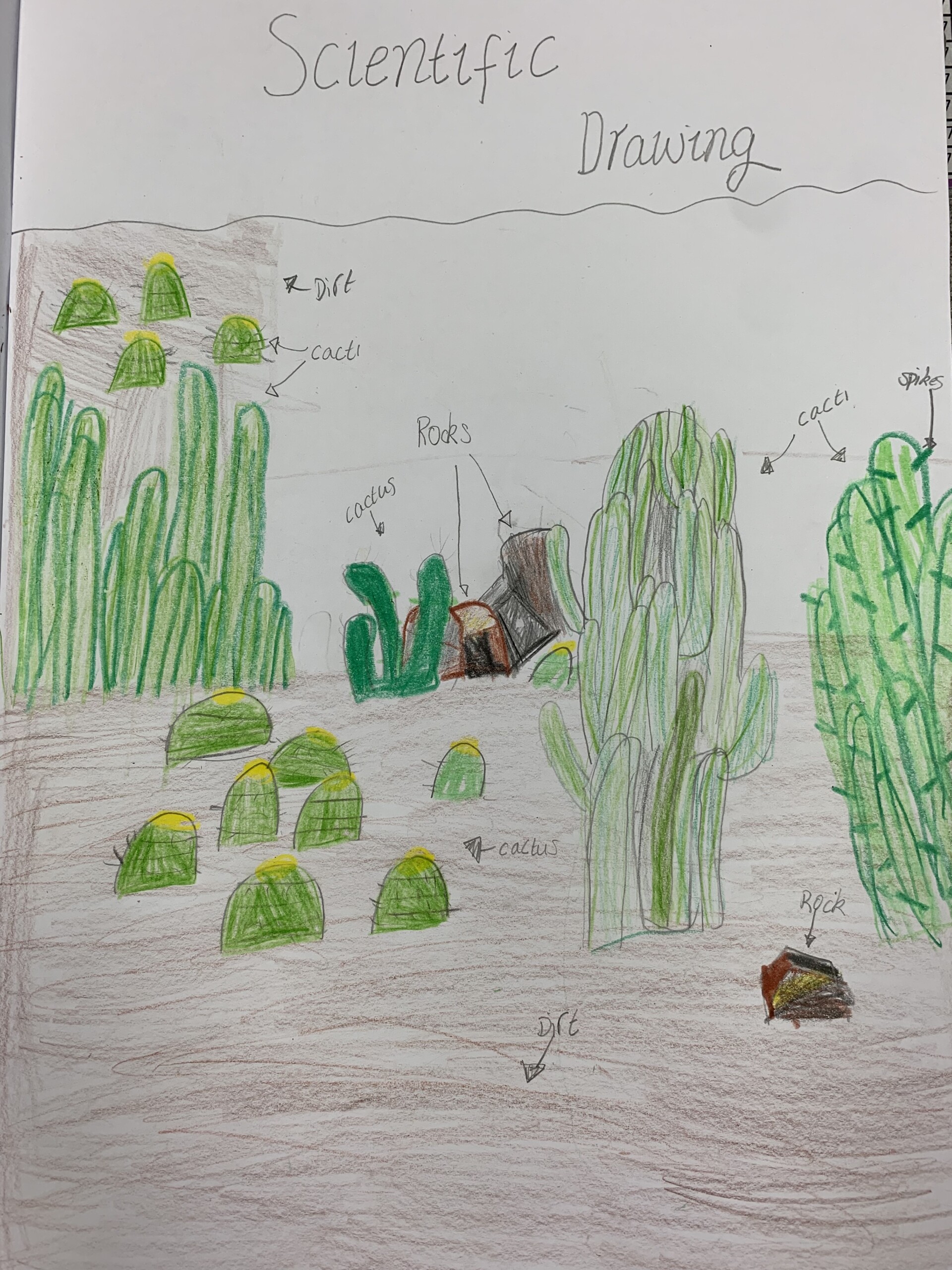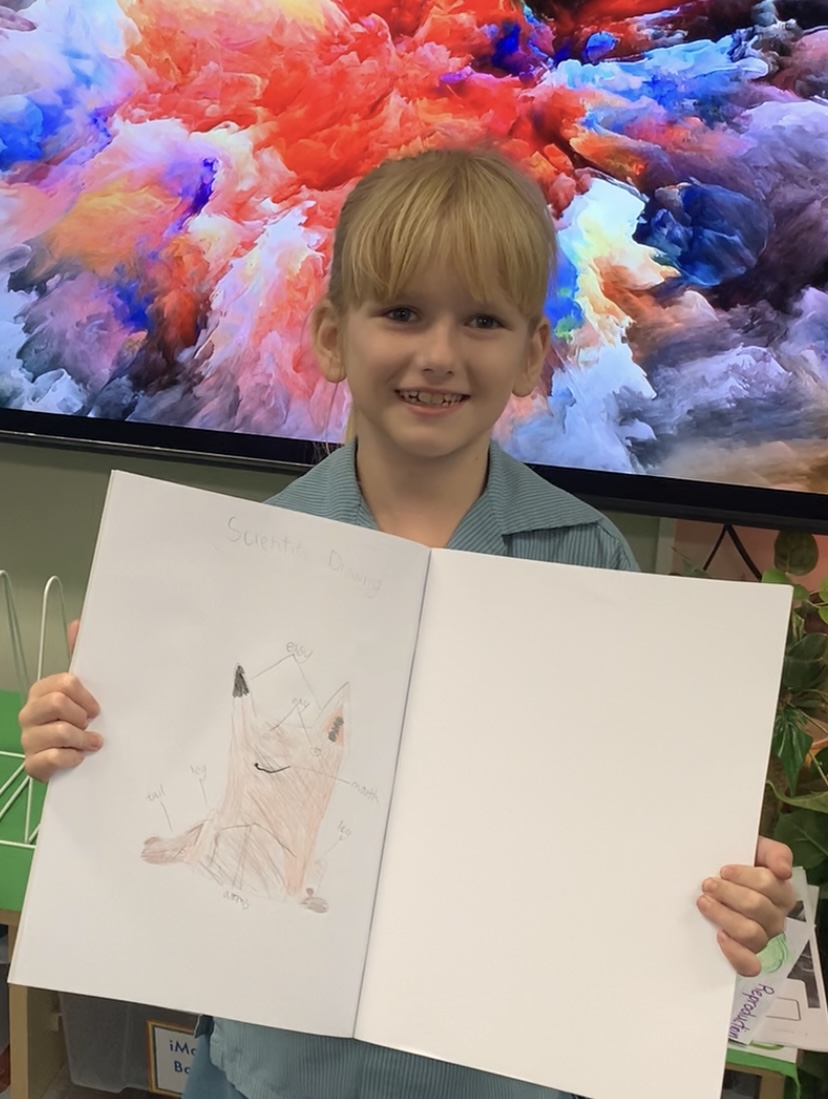Principal’s Report
SHANE DUPUY
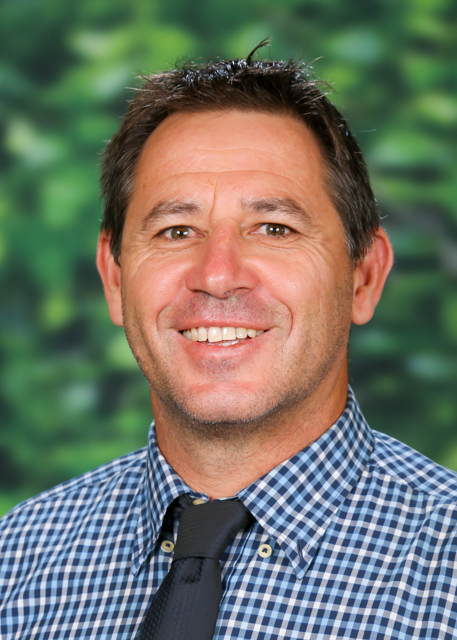
“It is impossible to progress without change, and those who do not change their minds cannot change anything.” — George Bernard Shaw.
This Issue
To say that the first 4 weeks of students being back on campus has gone in the blink of an eye would be an understatement; it’s been busy! Upon my arrival each day, the college is already humming. Teachers are busily preparing themselves for the day’s lessons, students are participating in training sessions or waiting at the front of the admin building for their mates, office staff are organising buses or answering phones, and grounds staff are maintaining our beautiful school environment. For a self-proclaimed creature of habit and someone who enjoys a simple life from the sanctuary of a few acres just out the road, it can be an assault on the senses. However, for the most part, starting each day like this is energising. The rigorous programs we are offering our students, along with the relationships being built amongst our community, one can only smile at the progress we are making. Walking through the college, students are engaging well in classes and the simple act of being greeted by a student in a friendly and respectful manner reaffirms we have something special here.
Of course, there have also been some challenges. Juggling class numbers and timetables, transporting students, and maintaining a safe environment during breaks are just some of the adjustments we’ve had to be agile with. For many students there has been a similar level of adjustment; new teachers and classmates to meet, new policies to adhere to and new concepts to learn. Fortunately, PBC’s amazingly professional and empathetic staff are aware of these challenges and will always be there to support your child.
Embrace the change.
Reminders / Changes
Uniform
Students have been requested to wear their school hat when entering and departing the college. This is a new process for all PBC students and whilst we understand it may take some time for an adjustment, staff will be actively monitoring students daily. To get into the habit, students have been advised that they should have their hat in their bag each morning and afternoon. Hats should be on heads upon arrival at 8:15am, and when dismissed from class at 2:55pm.
NAPLAN
Parents of students in Years 3, 5, 7 and 9 and reminded that the NAPLAN testing window will take place between 15 – 27 March. A timetable of testing days and times will be sent home to parents in the coming weeks. Parents are encouraged to read the information regarding NAPLAN by accessing information on the NAPLAN website (www.nap.edu.au). Please contact your child’s homeroom teacher, coordinator, or Mrs. Lauren Collins (Inclusive Education), if you have any concerns or queries.
Parking Issues
One of the issues regarding a 25% growth in student numbers, is the increased traffic entering the college grounds. Although we were able to add a staff carpark to the southern end of the site last year to allow for more parent parking, these extra spaces have quickly disappeared. At present, there is no silver bullet. I am aware that other schools in our area have similar if not worse traffic and parking issues. To ensure the safety of our students, and the continual flow of traffic, parents are reminded that the ring road is strictly a no standing area. Parents are asked to stay in their vehicle whilst their children hop in or out. If your children are not present at the end of the day, we ask that you do a loop and re-join the queue. If you are choosing to park onsite, please limit the time you are there so parks are readily available for those waiting. Furthermore, it is expected that all students vacate the college as quickly as possible at the end of the day. I would ask that all parents exercise patience in this matter.
Junior School
ALITA CARPENTER
Middle/Senior School
ASHLEIGH MORRISON
Please find below an overview of a few important things that were discussed at the Junior School information night:
- On the 28th of February we will be asking students to come dressed up to raise awareness of Rare Diseases Day. For further details, please see below.
- Please remember that if you have a question or concern about your child’s academic learning or well-being relating to school, that your first contact point is always your child’s classroom teacher. If the class or subject teacher is unable to resolve your concern, they may refer you to make an appointment with myself.
- Below is an update about the school policy regarding the use of devices (including phones) for all students:
-
- Only under teacher supervision.
- Not before or after school.
- Not to be connected to smart watches etc – student contact with parents is only through the office (if your child contacts you another way, please do not respond. Contact the office and let them know).
In addition to the reminders above:
- Our Year 4 SRC representatives will be elected this week and presented with their badges at the Middle and Senior School assembly next week (Week 5). If your child has been elected, their teacher will email you the details.
- In Week 6, the Junior School assembly will be hosted by Year 4G. We look forward to seeing families attend.
- Thank you so much to all of the students and families who have supported our uniform policy updates. We appreciate your efforts.
- Junior School Choir is scheduled to start up again in Week 6. An email with all of the details will be sent home next week.
- Year 1 digital accounts have now been set up for families to access Teams, passwords will be sent out in the coming week.
Have a wonderful fortnight.

Uniforms and Personal presentation; Creating an harmonious School Community
Whilst uniforms and uniform policies can often be a much-maligned subject, their importance in creating an harmonious school community can often be overlooked. While the curriculum at school is designed to teach students specific academic concepts, students learn many other important skills that go way beyond the rigid curriculum enforced by education authorities. Schools are places where young people learn skills not marked, graded, or bound by the text but have a lasting impact on the people they become.
School is the first formal ‘job’ of all young people. It is the place where they learn important social skills, skills in time management, perseverance, responsibility, empathy, critical and creative thinking, and respect whilst all the while preparing for future success. Uniforms and personal presentation are just one of the many ways that schools continue to teach, and students continue to learn outside of the four walls of the classroom. Uniforms play a significant role in establishing a sense of unity and equality among students by reducing social and economic barriers eliminating distinctions based on clothing or brand choices, creating a sense of belonging in the same way that sports fans wear their own teams colours with pride making them feel part of the community. Uniforms promote a focus on academics rather than feeling pressure to dress in a certain way or follow the latest trends, they enhance a student’s personal safety and security and allows them to develop an awareness of etiquette in a variety of more formal or casual settings.
Here at PBC we value everyone for the skills and personal attributes they offer. We want all students to feel that they are part of this amazing learning community, a community that extends the importance of learning beyond the classroom; that wants to see your child succeed and not be limited by what they wear or the way they look.
Student Services
HAYLEY CLIFTON & LAUREN COLLINS
 EXPERT COMMENT
EXPERT COMMENT
14 FEBRUARY 2023
EXPERT COMMENT: HELP, MY CHILD DOESN’T WANT TO GO TO SCHOOL
For students attending a new school, adjusting to a new teacher, a new class or their first year at school, it is quite common for them to feel nervous and anxious. As they grapple with this anxiety, they may express their emotions by switching off at school or even refusing to attend. Here’s what the experts say about supporting your children through their anxiety and getting them back into the learning game.
Dr Emily Berger (Monash University) – “Seven parenting tips to help your child struggling with a new school or teacher”
Dr Emily Berger is a senior lecturer in the School of Educational psychology and counselling at Monash University whose research interests include child mental health and academic outcomes, teacher education and trauma informed practices. Dr Berger is also a registered and endorsed Educational and Developmental Psychologist and board-approved supervisor with the Psychology Board of Australia, and a member of the Australian Psychological Society (MAPS) and College of Educational and Developmental Psychologists (MCEDP).
- Gather as much information as possible about the new school and teacher.
For children who are especially reluctant, ask the new teacher to share a photo of themselves, and/or a photo of the classroom and new school. The teacher could also share the classroom schedule and other important information.
- Talk to your child about what they can look forward to at the new school or with their new teacher.
Indicate your confidence in the teacher and speak favourably about school attendance.
- Be an active listener to the concerns of your child about school avoidance.
Children are often reluctant to adapt because they are uncertain as to what to expect. Parents can listen, engage and be supportive whilst also providing accurate information as responses.
- Get involved – help them to plan for their school day in advance.
This could be either by preparing their school uniform, planning lunches, or even packing their school bag with them. This may relieve some pressure they feel, and it demonstrates your interest as a parent in the child’s school life.
- Arrange to visit the school grounds before the first day to ensure both you and your child are aware of the school surroundings and environment.
Be certain your child can navigate the location to the playground, their classroom, the school office, and where they store their belongings during school.
- Reward them when they successfully attend school or engage in a school activity that they find anxiety provoking.
The reward can be as simple as letting them choose what to have for dinner. Such incentives can motivate the child at first and as school attendance becomes easier, this can be eased off.
- For children who are consistently exhibiting school refusal behaviours, a school attendance plan can be established to gradually build up a child’s interest and confidence over time.
If the issue persists, discuss and evaluate both your home environment and school interactions with the child that might be contributing to their anxiety, such as challenges with peers, access to technology during the day or the comfort of being close to parents.
Professor Andrew Martin (UNSW Sydney) – “Is it Will, Skill, or Both?”
Andrew Martin is Scientia Professor, Professor of Educational Psychology, and Chair of the Educational Psychology Research Group in the School of Education. Although the bulk of his research focuses on motivation, engagement, achievement, and quantitative research methods, he is also well-published in research areas such as academic buoyancy, adaptability, goal setting, pedagogy, and teacher-student relationships.
“Academic adjustment problems are common. Students may struggle with all their schoolwork or just in a particular subject area. If you want to support a student through these difficulties, it is useful to first identify if the difficulties are due to will, to skill, or a bit of both. This helps direct time and resources to the main areas in need. “
“If the problem is will, it refers to the motivation and engagement aspects of school life. There are positive parts to motivation and engagement, such as self-belief and effort—as well as negative aspects, such as anxiety and procrastination. “
“Skill refers to the knowledge and functions needed to learn and perform at school. It might be that they have difficulty in understanding information and the key concepts required to engage with a subject. Or, they may have functional problems with things like literacy, numeracy, and even executive functions such as paying attention and focusing. “
“It is important to identify which aspects the child is struggling with as early as possible because one can impact the other. For example, a student can lose motivation in the face of ongoing reading difficulties.”
Dr Charlotte Wilders (Deakin University) – “Engage your child’s voice in the learning space”
Dr Charlotte Wilders is a lecturer in Early Childhood Education at Deakin University and also an Assistant Principal at a primary school in Melbourne. She has several years of teaching and leadership experience at both early childhood and primary level in England, Belgium and Australia, and she completed her Doctorate at the University of Sheffield, England. Charlotte has an overarching interest in transitions between phases of education and has completed research aimed at gaining children’s perspectives of transition experiences.
“When children struggle with a transition to a new school or between phases of education this can become an emotionally stressful time for both parents and children.”
“Research focusing on educational transitions has identified that strong relationships between families and teachers are crucial to achieving a successful transition experience. “
“I would urge those parents whose children are currently struggling with a transition to support them through your connections and dialogue with the teacher. When you share information about your family culture and your child’s interests you effectively enable the teacher to create a learning space which acts as a bridge between home and school. Experts in the field associate the success of relationship building to the potential it provides teachers to build on children’s existing ‘funds of knowledge.”
“When parents and teachers access children’s voices to determine their interests, individual experiences can be created that improve motivation and lead to a stronger sense of well-being, giving children a strong sense of belonging to their new environment.”
Ms Rachael Hedger (Flinders University) – “Focus on meeting a child’s emotional needs first”
Rachael is a lecturer in Early Childhood Education at Flinders University. She is the Course Coordinator for the Early Childhood Initial Teacher Education degrees and Academic Professional Experience Co-ordinator for Early Childhood. Her PHD is dedicated towards research on children’s scientific drawings and their impact on science learning and she has conducted several projects focused on enhancing teacher education in South Australia. Prior to emigrating to Australia, Rachael taught in several primary schools and nurseries, teaching Preschool and Reception – Year 6.
“When a child starts learning in a new environment, there is quite a bit of adjustment required. They need to adapt to new routines, new people, and new expectations. This can be overwhelming for young children who are managing their own emotional responses through each new experience.”
“For a child to learn effectively in any space, the first and most important aspect is to meet their emotional needs. When a child feels that their emotional needs are met, they will be more receptive to learning and developing new knowledge.”
“For parents, this means making this new experience as positive as possible. Talk to them about what they are looking forward to in their day, support them to get ready for school the next day, connect them with a friend that they can play with, be there with them at school for a short time at the beginning of the day to help them navigate. These strategies are useful to meet a child’s emotional needs.”
“Keeping a line of communication open between parent and teacher is also an important aspect of a child’s success. Regular conversations before or after the school day; a quick chat to check in and raise any concerns can easily resolve many issues. This can be via email or the teacher’s preferred line of communication. Attending parent-teacher conferences/meetings and orientation sessions help to build connections between parents and teachers that ensures families have all the key information about school life to be able to fully support their child.”
“Be aware that this process differs for each child. Some days they may feel better about their school day than others, but rest assured that it won’t last forever, and they’ll soon develop a sense of belonging that supports their learning journey.”
MCERA, an independent, not-for-profit organisation, provides a conduit through which education research and researchers are made more accessible to the media to help improve public understanding of key education-related issues. We provide journalists with expert, independent and accessible insights from education researchers and practitioners. Any views expressed by the experts we consult are not necessarily those of MCERA or its staff.
We thank all of our supporters, especially our platinum supporters:
You can find a full list of MCERA’s supporters here. To find out more about supporting our organisation, contact info@mcera.org.au
Media Centre for Education Research Australia
ABN: 91 612 123 627
Address: Rm 380, Social Sciences South, Flinders University, Bedford Park SA 5042
Japanese
SAMANTHA WILLIAMS

 Peregian Beach College, in conjunction with Lexis English College, will be hosting Josei Gakuen High School Students (15 – 16 years of age) from Osaka, Japan from Sun 30 July 2023 – Thur 10th Aug 2022. These students will be having English lessons as well as attending some PBC lessons.
Peregian Beach College, in conjunction with Lexis English College, will be hosting Josei Gakuen High School Students (15 – 16 years of age) from Osaka, Japan from Sun 30 July 2023 – Thur 10th Aug 2022. These students will be having English lessons as well as attending some PBC lessons.
Families are required to drop off at 8:30am and pick up at 5pm each day except for the weekends.
If you feel you can offer one or two of these students a friendly and caring environment, we would love to hear from you. In return, you will receive a unique and rewarding cross-cultural experience for your children and for the whole family.
You will need to provide the student with their own bedroom, 3 meals a day and the required transportation to and from PBC Monday through Friday (carpooling available to assist with this).
Remuneration is also available for host families.
It will be first served. Please do not miss out on this incredible experience for your family.
Please reply here to express your interest.
More information forwarded soon!
Samantha Williams
P-7 Japanese Teacher
Senior News
JAMES WRIGHT
One of the first things the new senior student noticed upon arriving at Peregian Beach College is the welcoming and inclusive atmosphere. The school has a close-knit community that is committed to helping new students feel at home as quickly as possible. To this end, the school has provided various activities that allow new students to get to know their classmates, teachers, and school facilities. In the picture below, students are enjoying a round of rapid chat to get to know one another!

In addition to these orientation activities, senior students at Peregian Beach College are also given access to a range of support services to help them adapt to their new school environment. These services include academic support and counselling. The academic support team works closely with students to help them understand the school’s academic standards and expectations, as well as to identify any areas where they may need additional assistance or support. While the guidance team is always available to ensure students are maximising their opportunities and picking a pathway that works for them.
Aquaponics is a unique and innovative method of farming that combines aquaculture (the cultivation of fish) and hydroponics (the cultivation of plants in water). This system allows for sustainable and organic farming, and it is becoming increasingly popular in both commercial and residential settings. At PBC, aquaponics units are being incorporated into the curriculum as a hands-on way for students to learn about science, biology, and sustainability. Senior students have found that working on their school’s aquaponics unit can be a wonderful and exciting experience.
Students who are interested in science and sustainability have found that working on the aquaponics unit is a fun and engaging way to spend their class time. The unit consists of a fish tank, which houses the fish that are used to fertilize the plants, and a series of grow beds, where the plants are grown. The fish produce waste, which is then converted into nutrients by bacteria in the water. These nutrients are then absorbed by the plants, which in turn help to filter the water for the fish. This symbiotic relationship allows for sustainable and organic farming.
Perhaps most importantly, senior students who work on the aquaponics unit learn about the importance of sustainability and how it can be applied in their daily lives. They learn about the benefits of organic farming, and they gain an appreciation for the impact that their actions can have on the environment. They also learn about the importance of conservation and how they can help to preserve natural resources for future generations.
Overall, working on the aquaponics unit can be a wonderful and exciting experience for senior students. It provides a unique opportunity for hands-on learning, and it teaches important skills and concepts that can be applied in other areas of their lives.
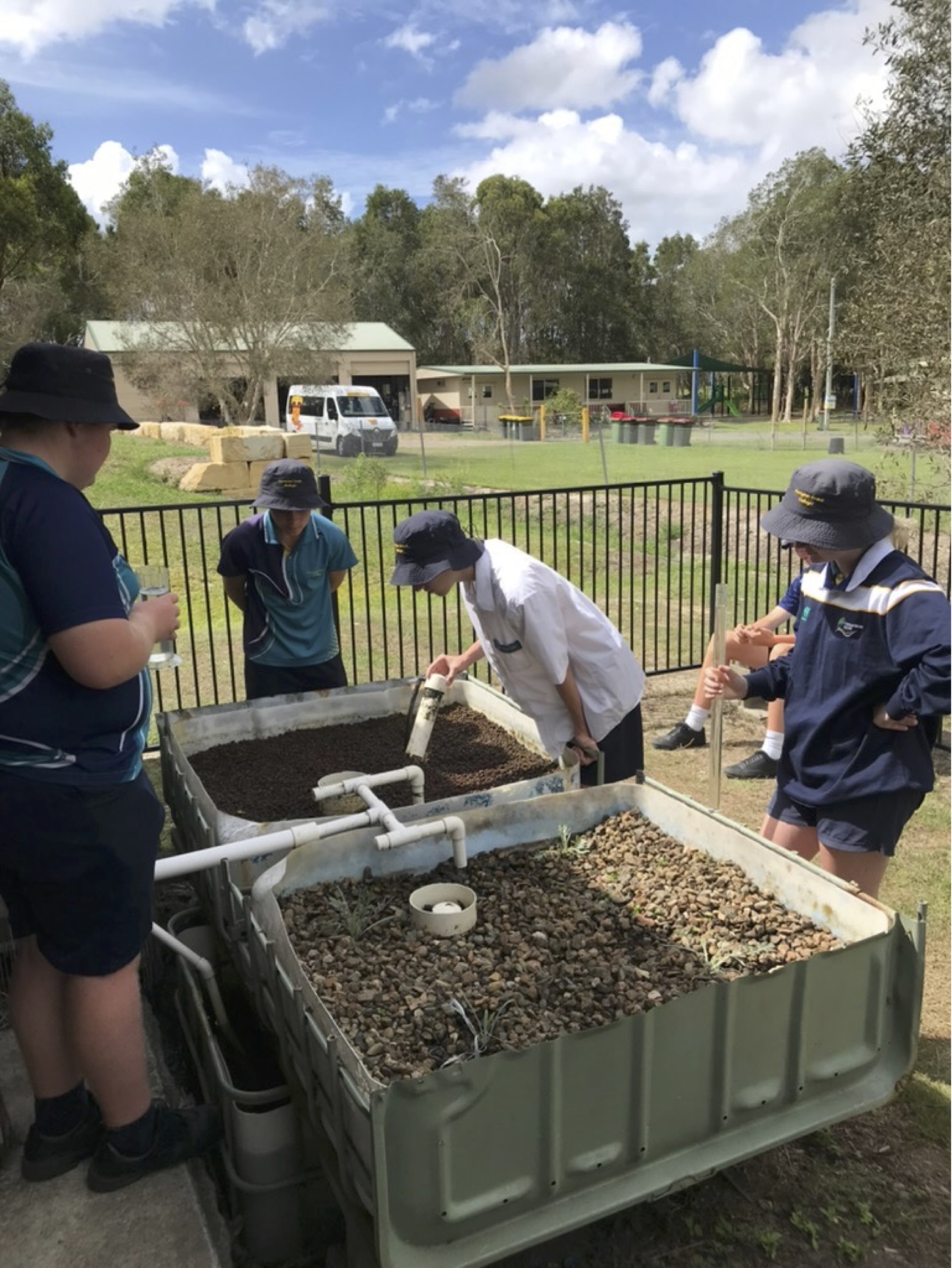
Year 12 Art
SUSE MACNICOL
Air: A Breathtaking Art Exhibition at GOMA in Brisbane
On Tuesday the 7th of February, senior art students travelled to Brisbane to view the blockbuster art exhibition ‘Air’ at the Gallery of Modern Art. The exhibition is a visual and sensory celebration of air and its significance to life and art.
The students were welcomed with a series of provocative large-scale installations, which explore different aspects of air, its physicality, movement, and impact on our environment.
Presented across the entire ground floor of GOMA, the exhibition is a journey through the invisible, ethereal and vital element of air. As viewers, we are forced to reflect on our shared atmosphere as life-giving, potentially dangerous and rapidly warming.
Expansive and inspiring, ‘Air’ at GOMA showcases over 30 significant Australian and international artists, reflecting the vitality of our shared atmosphere.
Senior students were able to engage with the works and discuss their thoughts and observations making it a truly interactive and educational experience. It is hoped the gallery visit will inspire the innovative use of materials and the creative interpretations of air and its effects within our classroom studio space.
When artists address the global issues confronting us today, they have the power to change the world – by changing the way we look at it.
Chris Saines CNZM, Director QAGOMA
Year 3
SAVANNAH DAVIS
Science
In science, Year 3 students have been learning about living and non-living things. ‘Mrs Gren’ is an acronym used to help students remember all the necessary features of living organisms: movement, respiration, sensitivity, growth, reproduction, excretion and nutrition. Students also identified that scientific drawings show the relative size, shape and location of different features of something. Year 3 students drew a very detailed scientific drawing of a living thing.
Sporting News
ALEC WAREING
Congratulations to our Swimming Carnival Age Champions; Lucinda, Oskar, Orlando, Ryan, Mya, Josh, Ellie, Blake, Gracie, Eli, Claudia, Toby, Shantel, Carter, Liam, Blake, Zoe & Duante. Amazing effort by all!

While you may easily mistake these students as members of the PBC dance academy, these are in fact year 11 Sport & Rec students. Focusing on ‘coaching’ this semester, two of our year 11 dance academy students took the boys through their paces. As you can see, the boys gave it their all, thoroughly enjoying themselves in the process.
Staff Profile
MIA LAYTON

| Staff Name: | Mia Layton |
| Where did you go to school? | I graduated from Kingscliff High School |
| What was your favourite subject at school? | Sport and Environmental Science |
| What is your favourite food? | Hard to pick just one but either Italian or Mexican |
| What are your hobbies? | Going to the beach with my border collie Cooper, trying new restaurants, camping and 4WD. |
| One of the following is true: |
|
Creative Writing
LISA BELL
The Junior Creative Writing group that I have the privilege of taking for MIND on Tuesday afternoons, have been working hard on ‘showing’ the reader their chosen scenery as opposed to ‘telling’ the reader.
Their task was to describe a rainforest (it could be imaginary) using their five senses – seeing, hearing, tasting, smelling and touching (physical / emotional).
Read some of their wonderful descriptions below!
Ava W – Year 3
In my forest I can hear the rough paperbark trees gently blowing in the breeze.
In my forest I can feel the smooth water from the waterfall splashing on me.
In my forest I can smell the lovely pollen carried by the bees.
In my forest I’m calm and happy like a flying cow and a dancing wallaby.
Frankie G – Year 3
I went for a walk in the forest and I saw trees swaying, birds tweeting and foxes running. Then I continued to have a walk and then it started raining. The sound was ‘pitter patter’. Then I jumped into a waterfall. ‘Splish splash’. It was cold. Then I dived down deep. Once I got out, I looked around and I saw green trees. There was a massive tree
Charlie S – Year 6
The rainforest I was in was darker than black. I saw little fox eyes staring at me from left and right. I heard the sound of thousands of crickets chirping and chatting. The moon shone bright behind the trees and wolves were howling loudly. I heard little dribbles of water, falling and flowing off the leaves. I felt a blob fall on my head and realised a flying wallaby pooped on me. I tasted the rainwater on my tongue and some of the wallaby poo had slid into my mouth. I touched my head to wipe the poo and rain off.
Keep up the great work!

